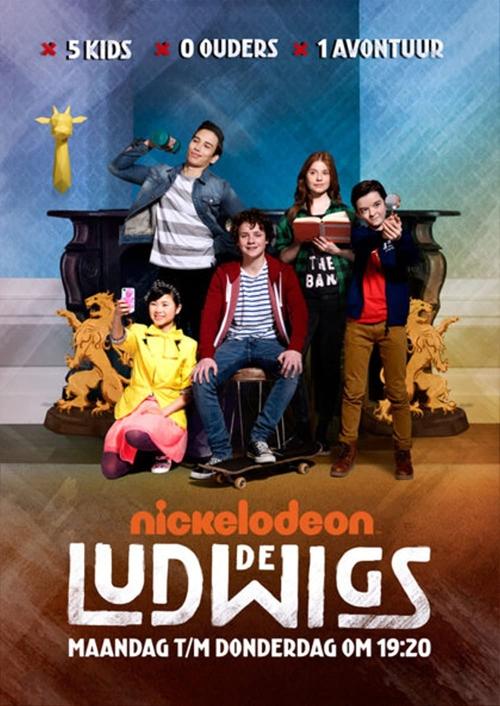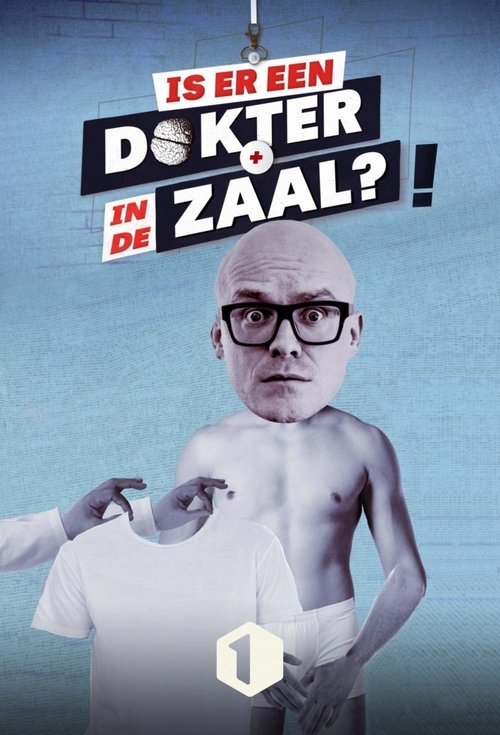
Ask Your Own Question
What is the plot?
In the opening scene of "Episode 4," the Stocker family is gathered around the breakfast table, where tensions are palpable. The father, Greg, is preoccupied with his work, while the mother, Linda, tries to engage the children, Max and Sophie, in conversation. Max is distracted by his phone, and Sophie is sulking, upset about a recent incident at school. The atmosphere is strained, highlighting the family's growing disconnect.
As the scene shifts, Greg receives a phone call from his boss, who pressures him to secure a crucial deal that could save his job. Greg's anxiety mounts as he realizes the stakes involved. He tries to mask his stress from his family, but Linda notices his unease and questions him. Greg brushes her off, insisting everything is fine, which only deepens Linda's concern.
Later that day, Max and Sophie are at school, where they overhear a group of popular kids discussing a party that they weren't invited to. This exclusion stings, especially for Sophie, who feels increasingly isolated. Max, wanting to protect his sister, decides to confront the popular kids, leading to a heated exchange. The confrontation escalates, and Max ends up in a minor scuffle, which results in both siblings being sent to the principal's office.
Back at home, Greg returns from work, visibly stressed. Linda confronts him about his mood, and they have a heated argument about their priorities and the family's financial struggles. Greg's frustration boils over, and he reveals that he might lose his job if he doesn't close the deal soon. Linda, feeling unsupported, expresses her fears about their future, which leads to a moment of vulnerability between them.
The next day, Greg decides to take a risk and invites his boss to dinner, hoping to impress him and secure the deal. He spends the day preparing, but his anxiety is palpable. Meanwhile, Max and Sophie are still reeling from the events at school. Max tries to cheer Sophie up by planning a small get-together with their friends, but Sophie is reluctant, feeling that no one wants to be around her.
As the dinner approaches, Greg's stress intensifies. He tries to put on a brave face for his family, but Linda can see through his facade. During dinner, Greg's boss arrives, and the atmosphere is tense. Greg attempts to impress his boss with his culinary skills, but the conversation quickly turns to business. Greg stumbles over his words, and the pressure mounts as he realizes he is not making the impression he hoped for.
In a pivotal moment, Greg's boss criticizes his recent performance, and Greg, feeling cornered, snaps back defensively. This unexpected outburst shocks everyone at the table, including Linda and the kids. The tension escalates, and Greg's boss leaves abruptly, leaving Greg feeling defeated and embarrassed.
After the boss's departure, the family is left in silence. Linda confronts Greg about his outburst, and they have a raw conversation about their fears and frustrations. Greg admits he feels like a failure, and Linda shares her worries about their family's future. This moment of honesty brings them closer, and they agree to support each other more openly.
The episode concludes with Max and Sophie deciding to throw the small get-together after all, inviting a few close friends. As they prepare, they share a moment of camaraderie, realizing that they can rely on each other despite the challenges they face. The final scene shows the family coming together, united in their struggles, hinting at a renewed sense of hope for their future.
What is the ending?
In the ending of "Meet The Stockers," Season 1, Episode 4, the main characters face the consequences of their actions throughout the episode. Tensions rise as secrets are revealed, leading to a confrontation that forces the characters to confront their true feelings and motivations. By the end, relationships are strained, and the characters are left to ponder their choices, setting the stage for future conflicts.
As the episode unfolds towards its conclusion, the scene opens in the Stockers' living room, where the atmosphere is thick with unspoken words. The camera pans across the room, capturing the anxious expressions of the main characters: Sarah, the matriarch, who is grappling with her sense of control; Jake, her husband, who is torn between loyalty and honesty; and their teenage daughter, Lily, who is caught in the crossfire of her parents' turmoil.
The tension escalates when Sarah confronts Jake about a secret he has been keeping regarding their finances. The lighting dims, casting shadows that reflect the weight of their conversation. Jake, visibly distressed, tries to explain his reasoning, but Sarah's frustration boils over. She feels betrayed, and her voice rises, echoing the emotional turmoil within her. The camera zooms in on her face, capturing the hurt and anger in her eyes.
Meanwhile, Lily, who has been eavesdropping from the hallway, steps into the room, her expression a mix of confusion and fear. She has been struggling with her own issues at school, and the last thing she wants is to see her family unravel. The scene shifts to her perspective, highlighting her internal conflict as she tries to mediate between her parents. She pleads with them to communicate, her voice trembling with desperation.
As the argument reaches its peak, Jake finally reveals the truth about their financial situation, admitting that he has been trying to protect the family from a looming crisis. The revelation hangs in the air, and the room falls silent. Sarah's expression softens momentarily, but the damage has been done. The camera captures the moment of realization on her face, a mix of relief and disappointment.
In the final moments of the episode, the family sits together in silence, the weight of their secrets creating an invisible barrier between them. The camera pulls back, showing the three of them in a tight frame, symbolizing their closeness yet highlighting the emotional distance that has grown. Each character is left to reflect on their choices, and the screen fades to black, leaving viewers with a sense of unresolved tension.
As the credits roll, the fate of each character is left ambiguous. Sarah is left to ponder her role as the protector of the family, Jake must confront the consequences of his decisions, and Lily is caught in the middle, unsure of how to navigate her family's fractured dynamics. The episode closes with a lingering sense of uncertainty, setting the stage for future developments in their relationships.
Is there a post-credit scene?
In "Episode 4" of "Meet The Stockers," there is indeed a post-credit scene that adds a humorous twist to the episode's events. After the main credits roll, the scene opens in the Stockers' living room, where the family is gathered around the television, still buzzing from the day's chaotic events.
The camera zooms in on the family as they discuss their latest misadventures in the stock market. Suddenly, the youngest member, Timmy, bursts into the room holding a toy stock market game, excitedly proclaiming that he has "figured out the secret to making millions." His enthusiasm is infectious, and the family leans in, intrigued.
As Timmy sets up the game, he starts explaining his "strategy," which involves a series of silly and nonsensical rules that leave the family in stitches. The scene captures their laughter and playful banter, showcasing the strong bond they share despite the ups and downs of their stock market journey.
The post-credit scene ends with Timmy dramatically declaring that he will be the next stock market mogul, while the rest of the family rolls their eyes, chuckling at his innocence. The camera fades out on their laughter, leaving viewers with a warm, light-hearted feeling that contrasts with the episode's more serious themes.
What specific event triggers the climax of Episode 4?
The climax of Episode 4 is triggered when a neighborhood barbecue goes awry due to a miscommunication about food contributions. This event forces the Stockers to confront their neighbors directly, leading to a dramatic showdown that reveals underlying resentments and the need for reconciliation.
How does the character of Lisa Stocker evolve in this episode?
Lisa Stocker experiences significant growth in Episode 4 as she confronts her insecurities about her role in the family business. She takes initiative to organize a neighborhood meeting, showcasing her leadership skills and desire to foster better relationships, which ultimately boosts her confidence.
What conflict arises between the Stockers and their neighbors in Episode 4?
In Episode 4, tensions escalate between the Stockers and their neighbors when a misunderstanding about property lines leads to a heated confrontation. The Stockers, feeling encroached upon, decide to take a stand, which reveals deeper issues of trust and communication within the community.
What role does humor play in the interactions between the Stockers and their friends in this episode?
Humor is a key element in Episode 4, particularly during the Stockers' dinner party with friends. The comedic misunderstandings and playful banter highlight the Stockers' quirky personalities and serve to lighten the tension from the earlier conflict with their neighbors.
How does the character of Tom Stocker react to the neighborhood conflict in this episode?
Tom Stocker initially reacts with frustration and defensiveness to the neighborhood conflict in Episode 4. However, as the episode progresses, he reflects on his actions and ultimately seeks to mend fences, demonstrating his desire for harmony and his commitment to family values.
Is this family friendly?
"Meet The Stockers," season 1, episode 4, contains several elements that may be considered objectionable or upsetting for children or sensitive viewers.
-
Family Conflict: The episode features scenes of tension and conflict within the family, which may be emotionally charged and could be distressing for younger viewers.
-
Financial Struggles: There are discussions and depictions of financial difficulties that the family faces, which might be unsettling for children who may not understand the complexities of adult financial issues.
-
Emotional Vulnerability: Characters experience moments of vulnerability and sadness, which could evoke strong emotions and may be difficult for sensitive viewers to process.
-
Humor with Edge: The show employs a style of humor that sometimes borders on sarcasm or dark comedy, which might not resonate well with all audiences, particularly younger children.
These aspects contribute to a narrative that, while comedic, also delves into deeper emotional themes that may require a more mature understanding.


























